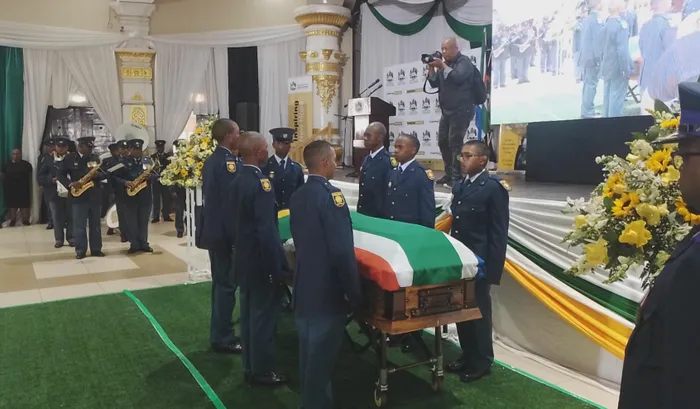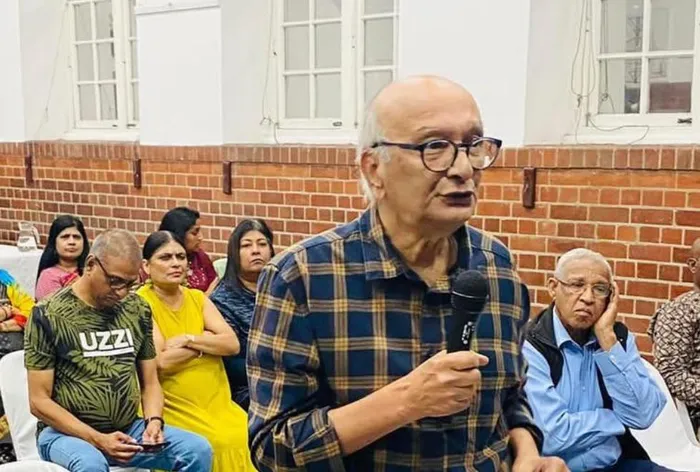Tributes pour in for ANC liberation icon Sunny Singh as party struggles continue
HEAVY HEART

ANC struggle icon Sunny Singh was honoured with a special provincial state funeral on Tuesday.
Image: Willem Phungula
Durban has bid farewell to African National Congress (ANC) stalwart and legendary South African liberation struggle figure Sunny Singh, who died at the age of 86. Singh's life was emblematic of a commitment to justice, freedom, and sacrifice, yet he departed this world with a heavy heart, troubled by the current state of the party to which he dedicated his entire life, his funeral service was told.
The service, held on Tuesday, was attended by an array of dignitaries, including senior ANC leaders and comrades from the struggle. In a poignant eulogy delivered by KwaZulu-Natal Premier Thamsanqa Ntuli, Singh was remembered as a transformative figure whose legacy resonates throughout the history of the fight against apartheid. Ntuli expressed profound gratitude for Singh’s extensive contributions to the liberation of black South Africans.
“Comrade Singh was very concerned and unhappy about the current state of affairs of his beloved movement, the ANC. However, as a principled and disciplined member, he always lived in hope that at some stage the party would renew itself,” reflected Mac Maharaj, a fellow commander of Operation Vula. Maharaj echoed the sentiments of many who shared a deep admiration for Singh’s unwavering belief in the potential of the ANC to reclaim its former glory.

ANC struggle veteran Sunny Singh, who died on Thursday aged 86.
Image: Facebook/1860 Heritage Centre
Singh's journey began in the working-class settlement of Umkumbaan in Cato Manor, Durban, where his upbringing shaped his early political consciousness. The son of an indentured labourer, he was acutely aware of socio-economic injustices from a young age. His political activism took root with his involvement in the Natal Indian Congress in 1950, and he quickly rose to prominence within the ANC’s military wing, Umkhonto weSizwe, formed in 1962. His actions against the oppressive apartheid regime led to his imprisonment on Robben Island for a decade following a sabotage operation.
After his release from prison, Singh took on various roles, including as a representative for the ANC in the Netherlands, before returning home in 1991. His post-apartheid career saw him serving in the South African Police Service, ultimately achieving the rank of Colonel in the Crime Intelligence unit.
In his closing remarks, ANC KwaZulu-Natal provincial spokesperson Fanele Sibisi paid tribute to Singh’s dedication, describing him as “a disciplined activist” and “a devoted son of the soil”. He noted that Singh's life was a powerful narrative of courage and a testimony to those who placed the country above themselves in the quest for freedom.